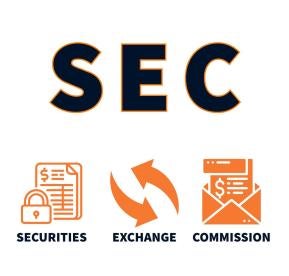The Securities and Exchange Commission (“SEC”) unanimously voted yesterday to re-propose a rule to prohibit conflicts of interest in certain securitization transactions. The SEC previously proposed, but never finalized, this rule in 2011. The rule is required by section 27B of the Securities Act of 1933 as added by section 621 of the Dodd-Frank Act. Comments on the proposal are due by March 27 (or possibly later if not published in the Federal Register by February 25 or if the comment period is extended).
Section 621 of the Dodd-Frank Act was an amendment to the Dodd-Frank Act mainly sponsored by Sen. Carl Levin after the Senate Permanent Subcommittee on Investigations, which he chaired, issued a report that found certain instances of the appearance of conflicts of interest between the sponsors of certain securitizations and their investors. The fact that 12 years have elapsed since the SEC originally proposed this rule may provide some evidence of how difficult it is to actually implement a workable rule in this space.
The proposed rule is designed to “prohibit securitization participants from engaging in certain transactions that could incentivize a securitization participant to structure an asset-backed security (ABS) in a way that would put the securitization participant’s interests ahead of those of ABS investors.” The SEC’s proposal would do this by prohibiting a “securitization participant” (generally the sponsor, initial purchaser, underwriter or placement agent of the asset-backed securities) from engaging in a “conflicted transaction.” The proposal defines a “conflicted transaction” as having two components: (1) being adverse to the ABS (i.e., entering into transactions where the securitization participant would benefit from the poor performance of the ABS, such as short sales of the ABS or purchase of credit default swaps on the ABS), and (2) being material to the investor in the ABS (i.e., whether the reasonable investor would consider the relevant transaction effected by the securitization participant important to the investor’s investment decision). As required by the statutory text, the proposed rule would exempt risk-mitigating hedging activities, bona fide market-making activities, and certain liquidity commitments.
Although the vote to issue the proposed rule for comment was unanimous, the Commissioners do not appear to have unanimity as to whether the proposed rule can strike the right balance. Commissioner Hester Peirce suggested that the proposed rule may be too vague, noting, for example, that the proposed rule’s definition of “sponsor” includes “entities that do not fit within the traditional definition of ‘sponsor’” and that the proposed rule is unclear regarding the type of activity that would constitute taking “substantial steps” for the purposes of becoming a securitization participant. Commissioner Mark Uyeda emphasized the need to balance protecting investors from conflicts of interest with “ensuring that market participants can engage in transactions that do not cause such harm.” Commissioner Uyeda expressed concern that the proposed rule does not strike this balance.
The Democratic appointees to the SEC − Chair Gary Gensler and Commissioners Caroline Crenshaw and Jaime Lizárraga − all expressed more support but await public comment. Commissioner Crenshaw, in a possible preemptive move, expressed skepticism at the use of information barriers, noting that commenters to the 2011 proposed rule opposed the use of information barriers given their limited utility and the difficulties associated with implementing, monitoring, and enforcing such information barriers.
We will have more to say on the SEC’s conflicts of interest proposal as we dig deeper into the proposal, so please be on the lookout for a more in-depth commentary from Cadwalader.





 i
i


